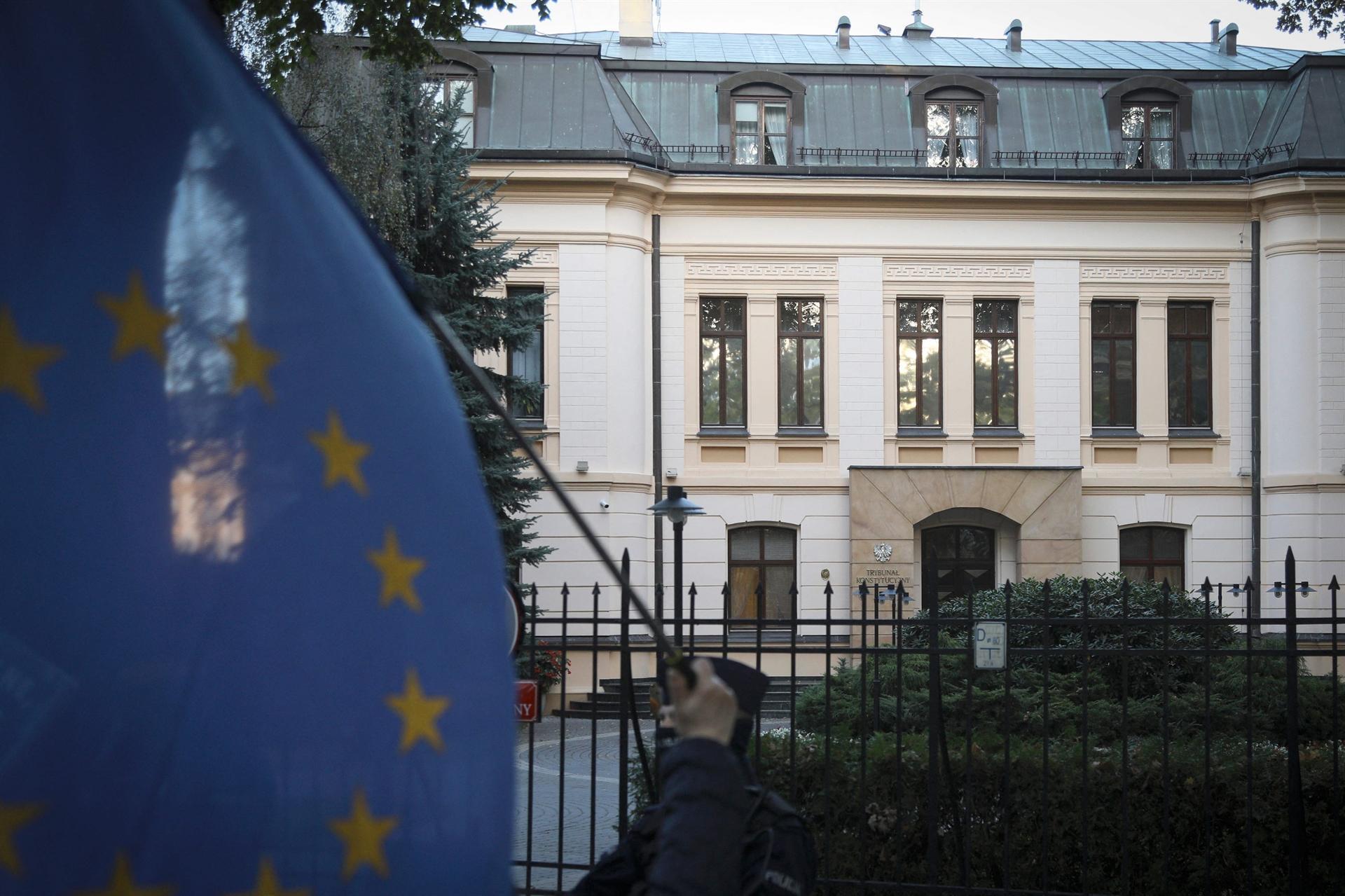
Poland’s top court on Oct. 7 ruled against the supremacy of EU law in a landmark ruling that could threaten the country’s EU funding and even its membership of the bloc.
The court said some EU treaty articles were "incompatible" with the Polish constitution and warned EU institutions not to "act beyond the scope of their competencies" by interfering with Poland’s judiciary - a major bone of contention with Brussels.
The ruling prompted a stern warning from Brussels, with EU justice commissioner Didier Reynders saying that "all tools" would be used to preserve EU law in Poland and that the principle of supremacy of EU law was "at the heart of the union".
Poland and the EU are at odds over judicial reforms introduced by Poland’s governing right-wing Law and Justice (PiS) party which Brussels warns threaten the country’s democracy.
"Shame!", "Traitors!" and "Welcome to Belarus!" shouted a group of around 30 protesters outside the court after hearing the ruling, some of whom waved European Union flags.
"It’s a scandal... They’re taking us out of the European Union!" said Anna Labus, a pensioner who was in tears.
Malgorzata Roslonska, the owner of a hairdressing salon, said: "This is probably the first step towards Polexit".
In Brussels, Jeroen Lenaers, a spokesman on justice and home affairs for the European People’s Party, said: "Enough is enough. This is an attack on the EU as a whole".
But the Polish government, which brought the case, welcomed the ruling, with spokesman Piotr Muller saying that it confirmed "the primacy of constitutional law over other sources of law".
Before the ruling, EU economy commissioner Paolo Gentiloni had warned that the Polish court case could have "consequences" for the disbursement of Poland’s pandemic recovery funds.
The EU is so far holding off on approving the 23 billion euros ($36 billion) in EU grants and 34 billion in cheap loans.
The Polish government has called Gentiloni’s words "blackmail".
EU officials have since said that the money could be disbursed next month but with strict rule of law conditions attached.
The European Commission last month also asked the Court of Justice of the European Union court to impose daily fines on Poland until it suspends the judicial reforms.
The dispute with Brussels has focused in particular on a new system for disciplining judges which the EU says is a serious threat to the independence of the judiciary in Poland.
But there are other points of disagreement, including the appointment of judges and the transfer of judges without their consent between different courts or divisions of the same court.
Poland has said that the reforms are needed to root out corruption in the judiciary and has ignored an interim order from the EU court to suspend the judge disciplining system.
The row has raised concerns that Poland might end up leaving the European Union, which could affect the stability of the bloc itself.
Jaroslaw Kaczynski, head of the PiS, last month dismissed the notion saying that Poland only wanted an end to EU "interference".
"There will be no Polexit... We unequivocally see Poland’s future in the European Union," Kaczynski said.
But Ryszard Terlecki, the deputy speaker of parliament, recently called for "drastic solutions" in Poland’s dispute with the EU.
"The British showed that the dictatorship of Brussels bureaucracy does not suit them. They turned and left," he said.
Poles are overwhelmingly EU-enthusiastic, with over 80 percent backing membership of the bloc that has given their country billions of euros in subsidies, turbo-charging its economic development since it joined in 2004